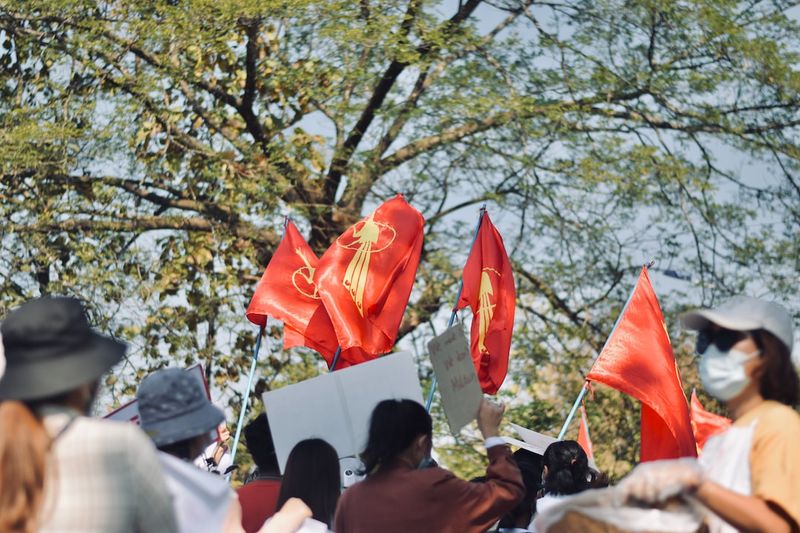Table of Contents
Myanmar‘s Crackdown on Defense Counsel: A Threat to Justice System
The military coup of February 1, 2021, in Myanmar has resulted in widespread human rights abuses by the military junta. Amongst the many victims, lawyers defending the anti-coup protesters and critics have faced unjust arrests, torture, and mistreatment. The situation threatens the justice system of the country as lawyers are being systematically impeded and harassed, facing restrictions and obstacles to their work.
The Crackdown on Lawyers
According to a recent report by Human Rights Watch, the junta authorities have targeted lawyers fighting political cases, with at least 32 lawyers arrested and detained since the coup with little evidence supporting the charges against them. The authorities have harassed and intimidated lawyers, and some have reportedly been targeted in retaliation for representing activists charged with sedition, incitement, or terrorism. There have also been cases of torture and mistreatment of detained lawyers, highlighting the disregard for human rights and the rule of law.
The Declining Justice System
With thousands of anti-coup activists and critics arrested and detained, Myanmar‘s already tenuous justice system has declined drastically, failing to uphold basic due process rights. The junta has created “special courts,” closed courts inside prisons that violate fair trial rights, to fast-track politically sensitive cases. Military tribunals have held summary trials in townships where martial law has been declared, denying suspects their rights to due process and a fair trial.
The Importance of Lawyers in the Justice System
The ability of lawyers to exercise their functions freely and independently is central to the capacity of the justice system to protect fair trial rights. Lawyers need confidential access to their clients to provide prompt, unhindered, and accurate legal advice and ensure the right to a fair trial. The systematic harassment and arrest of lawyers disrupts the ability of victims to receive legal representation and their right to a fair trial.
Restoring Civilian Democratic Rule
Myanmar‘s junta should urgently restore civilian democratic rule, and concerned governments should impose targeted sanctions against junta members implicated in abuses, seek referral of Myanmar to the International Criminal Court, and adopt a global arms embargo. By doing so, foreign governments and regional organizations can help to improve the human rights situation in Myanmar. Pressing for the release of political prisoners and raising the harassment and detention of lawyers should be central to these efforts.
Conclusion
The ongoing attack by the military junta on the justice system of Myanmar through the harassment and detention of lawyers is cause for alarm. It threatens to undermine the rule of law and the ability of citizens to access a fair trial. Restoring civilian democratic rule and protecting the rights of lawyers are essential for Myanmar to move towards a more just and democratic society.

<< photo by Pyae Sone Htun >>
You might want to read !
- “International Action Needed: Kakhovka Dam Destruction Threatens Humanitarian Crisis in Ukraine”
- The Devastating Consequences of UN’s Food Ration Cuts on Rohingyas in Bangladesh Camps
- The Latest Attack on Trans Rights: Russia’s Proposed Ban on Trans Health Care
- A New Reparations Process Must Be Instituted to Address Germany’s Crimes Against Namibia’s Herero and Nama People
- Senegal’s Democracy at Risk as Government Cracks Down on Opposition and Dissent
- Rwanda Continues the Pursuit of Justice: Genocide Mastermind Arrested
- Political and Humanitarian Crisis Intensifies: Lao Refugee Shot Dead in Thailand
- Uzbekistan’s Imprisoned Lawyer: A Test of the Country’s Reform
- The Alarming Rise in Deaths in Custody in Lebanon: A Call to Wake Up
- “Acquittal of human rights defenders marks a step towards justice in Turkey”
- The Assault on Democracy in Poland Continues with New Law to Bar People from Public Office
- The Deadly Consequences of Angolan Fuel Price Protests
- Risks Loom as Central African Republic Holds Referendum